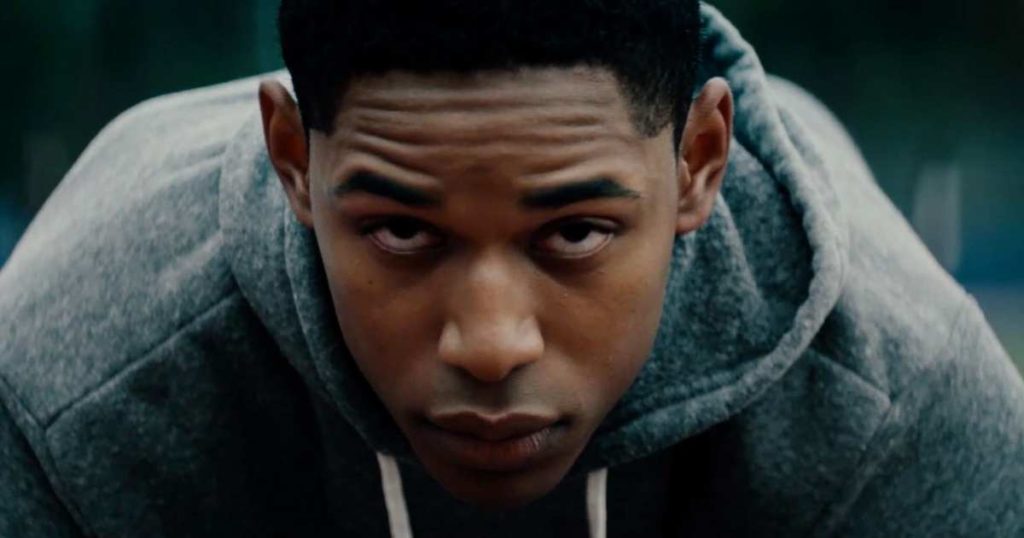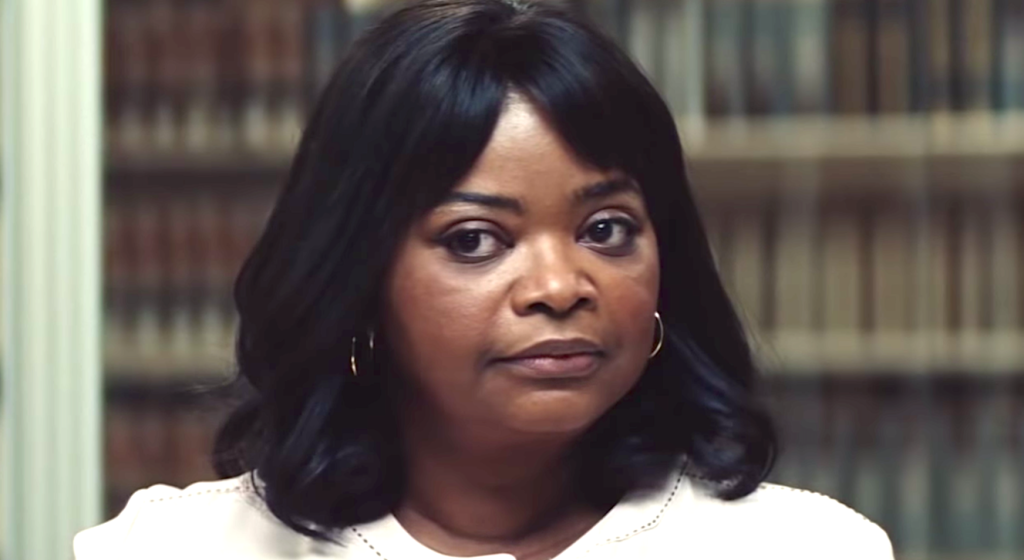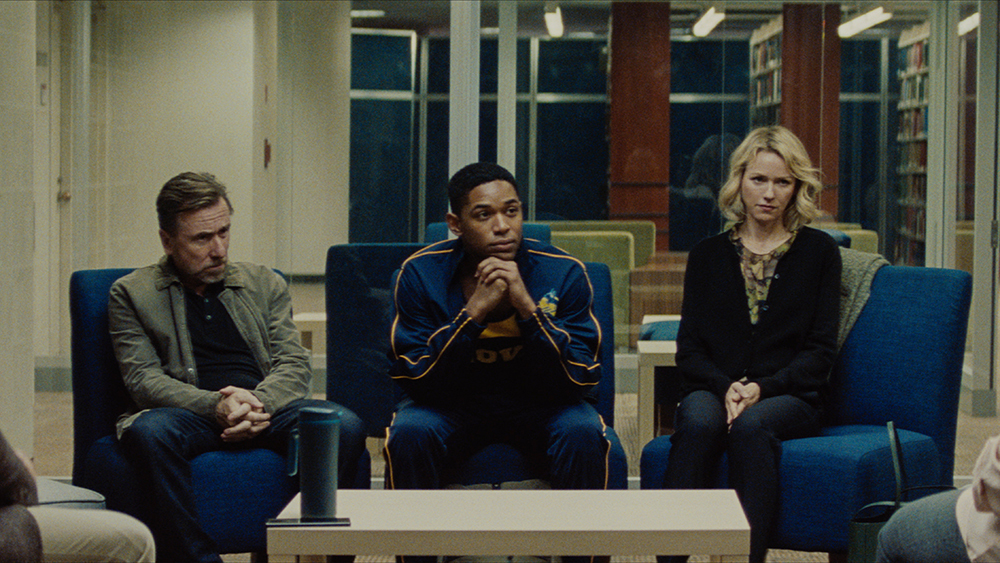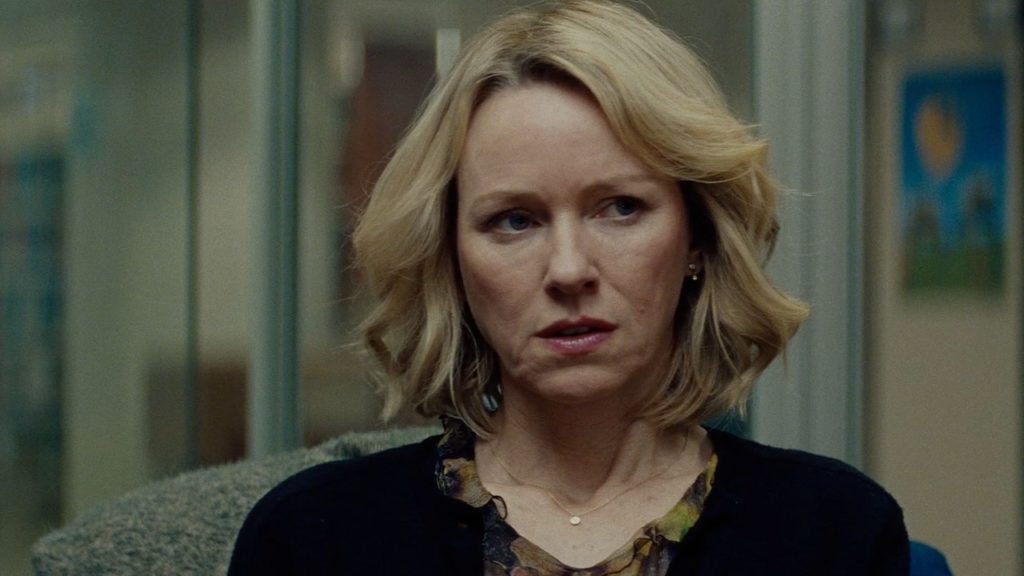
He’s the valedictorian. His teachers often ask him to give inspirational speeches, which he delivers with disarming sincerity. He’s also a star athlete, a sprinter who runs in the upright style of Michael Johnson. And he excels on the debate team, where he presents his lucid arguments with a confidence that never slips into arrogance. His name is Luce, and as the school principal puts it, he is the very definition of a model student.
And Luce, while an imperfect film, feels similarly paradigmatic. Coursing with energy, insight, and relevance, it is exactly the kind of movie that American audiences should be watching right now, as the world burns and cultures clash. Unashamedly provocative, it is designed not to shame but to stimulate, to inspire discussion and reflection. It asks complex questions—about race, sex, drugs, criminal justice, even the platonic conception of the American dream—and then demands that you hunt for the answers. It holds up a mirror to the country and forces you to confront what you see.
The catalyzing incident in Luce occurs, naturally, in the classroom, where a teacher named Harriet (Octavia Spencer) instructs her students to write an essay from the perspective of a historical figure. Luce (a terrific Kelvin Harrison Jr.) complies by assuming the identity of Frantz Fanon, the French West Indian freedom fighter who advocated violence as a necessary means to achieve social ends. The forceful rhetoric in Luce’s paper dismays Harriet, who searches his locker and locates illegal fireworks; this prompts her to call his mother, Amy (Naomi Watts), and inform her of a vague but persistent fear that this beloved honor student may be harboring dark thoughts. What follows is an extended reckoning, one replete with accusations, deceptions, and ugly truths.

In one bizarre way, the premise of Luce recalls American History X, which opened with a whip-smart student receiving an ostensibly well-meaning assignment—critique a human-rights work—and perverting it by writing about Mein Kampf. Yet where that film used its pupil’s incendiary behavior as the springboard for a simplistic (if highly entertaining) story of a white man’s redemption, Luce is not so straightforward. Rather than offering uplifting journeys or easy platitudes, it interrogates its characters’ prejudices and assumptions, and maybe yours too.
A black student attending a predominantly white private school, Luce was born in Eritrea before he was “pulled out of a war zone” as a boy and adopted by Amy and Peter (Tim Roth, doing another of his random American accents). His horrific past, combined with his flawless assimilation into Western society, brands him a poster boy, a wholesome symbol of American values and generosity. Yet Luce resents this sort of labeling, and even before he learns of Harriet’s freighted conversation with his mother, he laments that she has pigeonholed him, propping him up as an emblem of black success rather than recognizing him as the multifaceted person he is.
The notion that we are more than we appear—that we hide pieces of ourselves, and present different faces to different people—is not an especially novel idea. Yet Luce, which was directed by Julius Onah from a screenplay he wrote with J.C. Lee, explores this conceit with both passion and rigor. It refuses to lionize or demonize its characters; you sympathize with everyone you meet, which means you also tend to view them with confusion, frustration, and anger.

Harriet, for example, appears to be an astute and thoughtful teacher, and her insistence on holding Luce to a high standard can be seen as protective rather than hypocritical; she understands the challenges facing young black men, and she believes that preparing them for those grim realities—that they are always at risk, will always be judged, and must always do more than their white counterparts simply to survive—is her solemn duty. At the same time, her sense of responsibility can bleed into zealotry; when the movie opens, Luce remains rankled by a recent incident where Harriet searched the locker of a black teammate (played by the rapper Astro) and found marijuana, thereby getting him kicked off the team. Is she serving her students’ interests, or her own?
Luce’s parents, meanwhile, regard him with a mixture of pride and apprehension not often depicted on screen. They are also seldom on the same page. Amy is fiercely nurturing, and she treats the suggestion that Luce might be hiding something with an incredulity that gradually shifts into crippling doubt. Peter, on the other hand, is less trusting and more judgmental, feelings that may stem from their years-old decision to nobly adopt a black child rather than biologically produce a white one. A drunken conversation between the parents at their kitchen table, in which they rehash “the costs” of bringing Luce into their family, is brutal in its honesty.
That scene is one of many tête-à-têtes in the film, which is based on Lee’s play and is, at its core, very talky. Yet Onah invests the proceedings with an intensity that belies its theatrical origins. He and his editor, Madeleine Gavin (What Maisie Knew), employ peculiar rhythms, often interrupting scenes before abruptly returning to them. The score, by Ben Salisbury and Portishead’s Geoff Barrow (Ex Machina, Annihilation), is deeply unsettling, with jolts of drone and percussion. The result is that, for all its dialectical ambitions, Luce acquires the tone and momentum of a thriller, less The Class than We Need to Talk About (Black) Kevin.

To tell this disturbing and engaging story, which snakes in unexpected ways but rarely feels false, Onah has assembled a first-rate cast; Watts, again playing one half of a married couple alongside Roth as they did in Funny Games, is particularly good, most memorably in a wrenching scene opposite Luce’s ex-girlfriend (Andrea Bang), where they sip frappuccinos and discuss a ghastly assault. (Elsewhere, Fosse/Verdon’s Norbert Leo Butz is just right as the school’s pragmatic principal.) But the crucial ingredient in Luce’s success is, well, Luce—by which I mean the actor playing him. Harrison, who previously delivered solid supporting turns in It Comes at Night and Monsters and Men, is simply riveting here, transforming the title character into an indecipherable enigma dripping with intelligence, tenacity, and a tantalizing hint of menace. He is always the smartest guy in the room, which also makes him a little scary because you never know what he’s really thinking.
Luce may be filled with words, but it’s hard to imagine it working on the page; the key here is how those words are delivered—their inflection, the way they’re accompanied by facial expressions and body language. There’s a degree of code-switching inherent in Luce’s speaking style, the way he casually uses slang when chatting with peers but is painstakingly gracious in his conversations with adults; that’s partly just good manners (and common sense), but it also implies a conscious decision to obfuscate his own blackness. Yet his silver tongue and blinding smile can also serve to mask a passive-aggressive attitude, not to mention facilitate a canny gift for goading his targets. When he cheerfully tells Harriet that his favorite holiday is Independence Day—the memory of those seized fireworks fresh in her mind—it’s impossible to tell if his statement is a genuine declaration or a loaded threat.
Luce’s steadfast intellectual commitment occasionally gets the better of it; despite Onah’s ominous window dressing, there are times when the movie’s looping dialogues feel academic. And a subplot involving Harriet’s mentally ill sister (Marsha Stephanie Blake) doesn’t quite work, lacking the nuance and texture that animate the main storyline.
Those flaws hardly prevent Luce from accumulating a barreling power, which in turn never undercuts the film’s scrupulous ethical underpinnings. Midway through, there’s a seemingly innocuous sequence in which Luce recruits Harriet to assist with his debate prep, where the topic just happens to be the legality of a school official searching a student’s locker; eyes flashing with unknown intent, Luce warmly thanks his teacher for her help, even as his carefully chosen words churn her stomach. The message is clear: You don’t want to go up against this dude, whether in a debate or in a less civilized arena. But even Luce might struggle to knock this smart, gripping movie off its moorings.
Grade: B+
Jeremy Beck is the editor-in-chief of MovieManifesto. He watches more movies and television than he probably should.
